College of Health Sciences – Department of Midwifery ... Mari your way to success
“At Mary University, paths of health giving are woven. The Midwifery Department in the College of Science is a model of academic innovation, combining international standards with community specificity to provide pioneering education in maternal and child care. The department seeks to develop professional competencies capable of keeping pace with modern health transformations, contributing to enhancing the quality of medical services, and building a solid foundation for sustainable community health.”
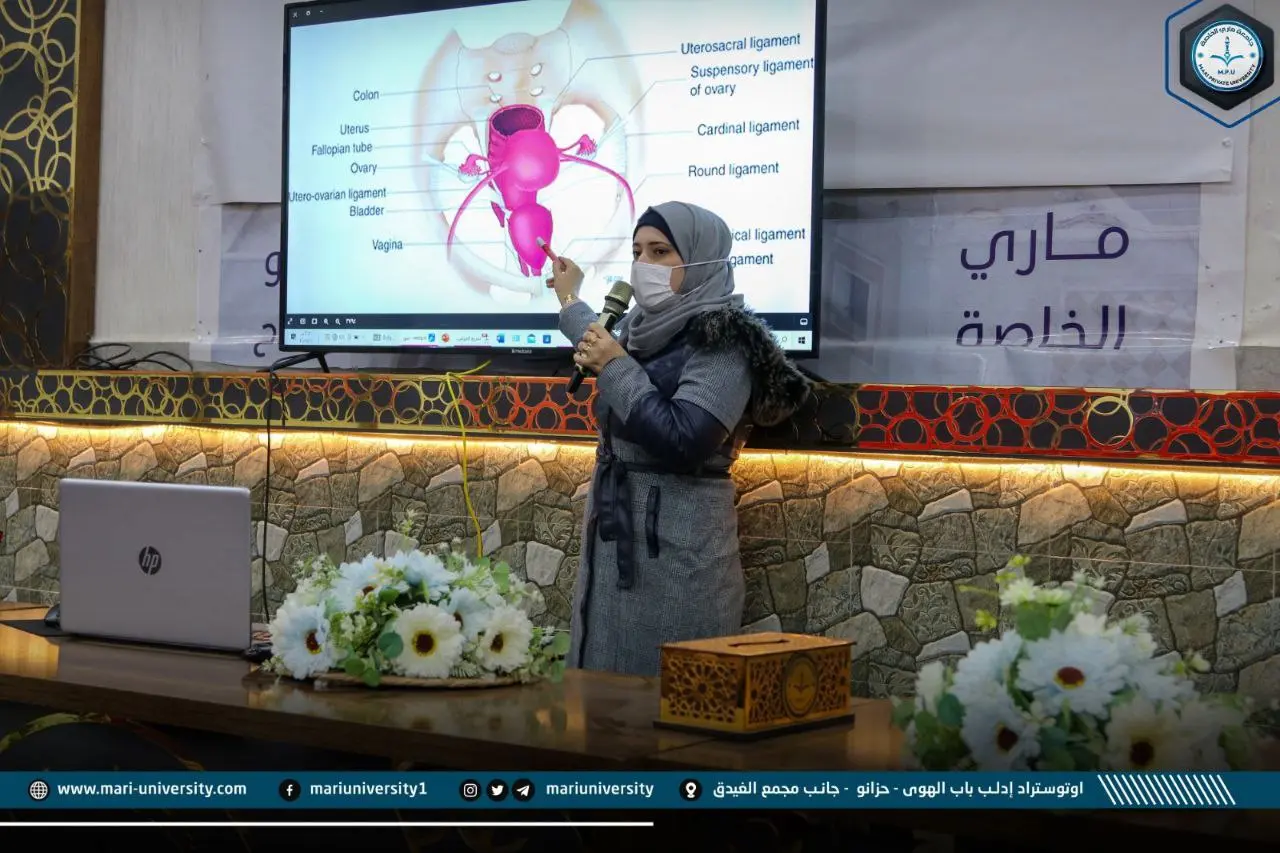


Internal Regulations of the Faculty of Health Sciences - Department of Midwifery
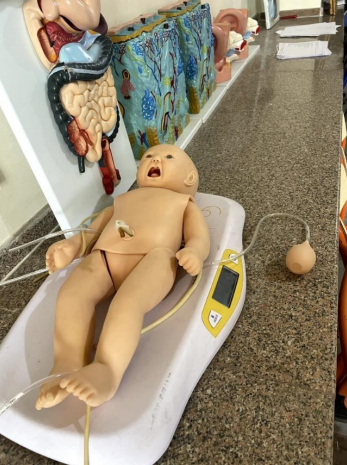
College Introduction
The Department of Midwifery at the University of Mari was opened by decision of the Higher Education Council for the 2022/2023 academic year. The department has taken it upon itself to contribute to the education of its female students. The College of Health Sciences at the University of Mary plays a significant role in advancing the highest levels of educational advancement by graduating qualified personnel and keeping pace with developments in the labor market.

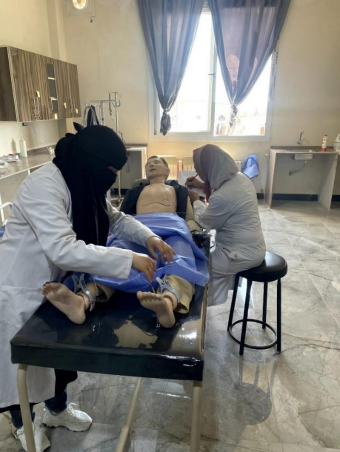
College Vision
The College of Health Sciences at Mary University strives to achieve quality and excellence and occupy a prominent scientific position on the map of university education in northern Syria. This is achieved by providing a distinguished environment for university education, scientific research, and community service, enabling it to compete at all levels.

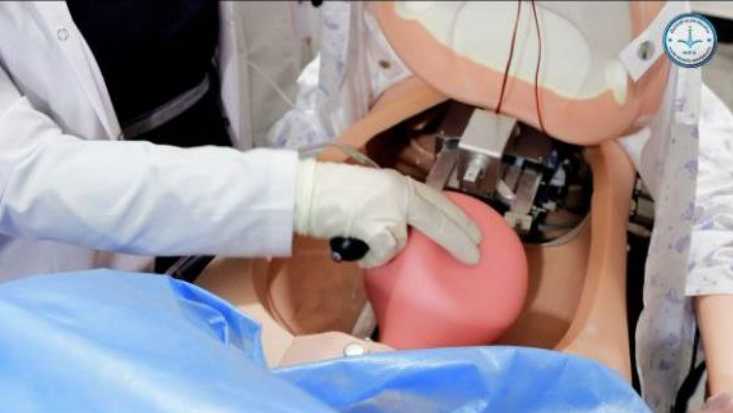
College Message
Preparing qualified and specialized graduates, both male and female, who are able to meet the needs of society and the market and are innovative in the field of midwifery and obstetrics.


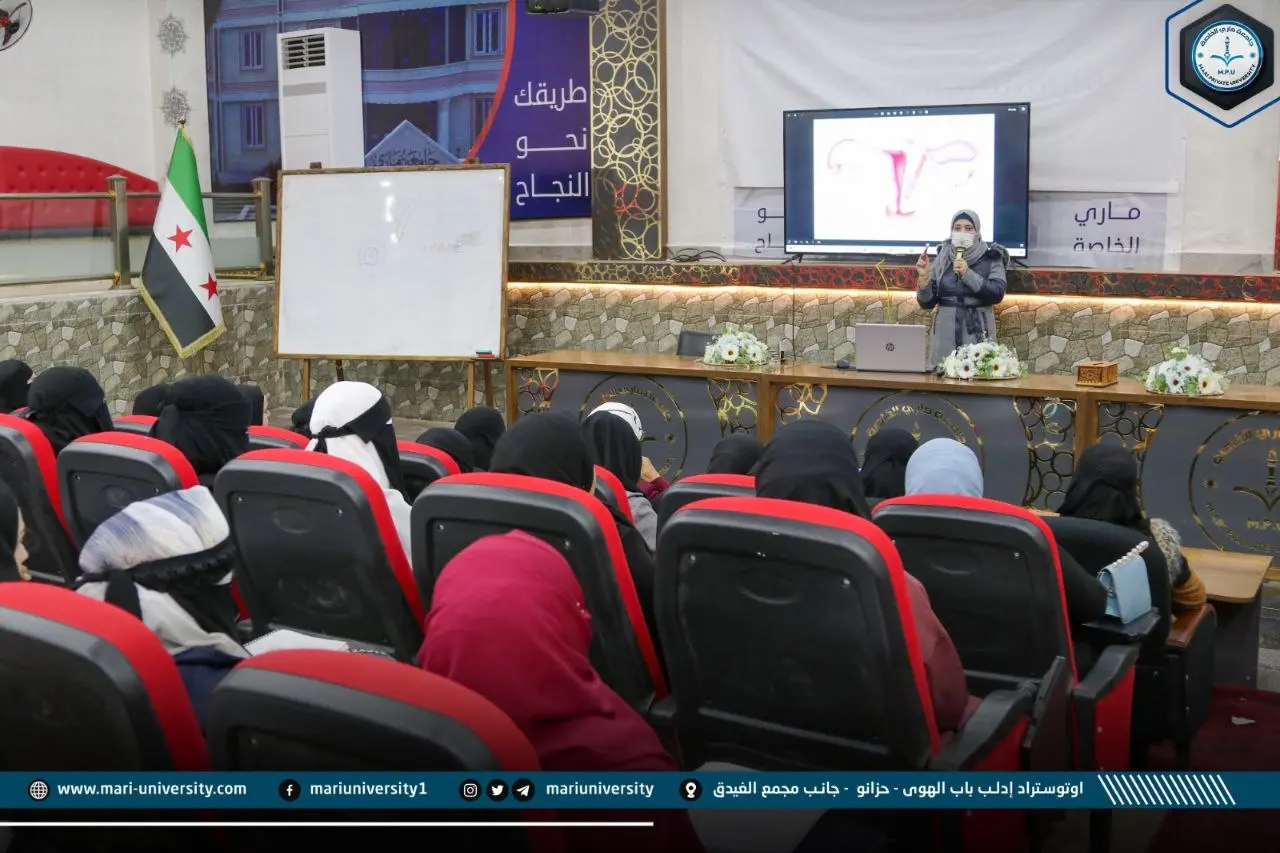


College objectives
The Midwifery Bachelor’s Program aims to prepare certified midwives who are experts in natural childbirth skills, dealing with all obstetric complications, emergency gynecological cases, and neonatal resuscitation. This is achieved by providing an environment conducive to the application of modern teaching methods that encourage students to apply and practice all obstetric techniques and maneuvers, and to manage all cases. Through this environment, students are provided with the necessary theoretical and practical clinical knowledge required by midwives.

Admission Requirements To The College of Midwifery
- The student must have a scientific secondary school certificate or its equivalent, in accordance with the decisions of the Higher Education Council.
- He must meet the admission requirements set by the Higher Education Council.
- He must be fully dedicated to studying at the college.
- The study period extends to four years, upon successful completion of which the student is awarded a Bachelor's degree in Midwifery. The program is based on an integrated combination of theory and practical training (laboratory and clinical), within a modified semester system that includes three examination sessions during the academic year.
- The academic year is divided into two main semesters, each lasting 12 weeks, with a focus on developing comprehensive skills through curricula designed to meet the requirements of the profession. Language is taught as a core component of the curriculum, with content that promotes effective communication in a healthcare setting.
- The program focuses on developing cadres capable of employing scientific knowledge and practical skills in the field of maternal and child care, in line with the highest local and international standards.
The appropriate default phrase to respond to the previous question (for a general answer): "To communicate directly with Mary University in Idlib, you can use one of the following methods:
- Telephone or email found on the official website.
- Visit the campus during official working hours.
- Follow the university's social media channels for the latest updates.
For more details, we recommend visiting the university's official platforms or contacting them directly. We are happy to assist you with any additional inquiries!"
The primary language of instruction is Arabic.
Students are assigned to university-accredited hospitals for training starting from the second year.
178
Student4
Number of Years of Study100
Successful(%)20
Instructors

Examination and Grading System - Calendar and Exams
College exams are conducted according to the university calendar approved by the university after the approval of the Higher Education Council.
The maximum grade for each course is 100, divided as follows:
- 30 to 60 for the practical section (during the semester).
- 40 to 70 for the theoretical exam (at the end of the semester).
The exact distribution (practical/theoretical) is determined according to the nature of each subject.
Includes:
- Student’s Work Grade (reviews, seminars, oral exam, performance evaluation).
- Practical Exam.
The course instructor distributes the percentages among the components of the practical section.
The failed student retains the full grade for the practical section and is only allowed to retake the practical exam.
- The duration of the written exam is two hours per course.
- The instructor may (with the dean's approval) change the exam format (oral/written) as appropriate to the nature of the course.
The student who fails retains the full grade for the practical section, and is only allowed to retake the practical exam.
- Excellent: If the average is ≥ 85%.
- Very Good: If the average is between 75% and less than 85%.
- Good: If the average is between 65% and less than 75%.
- Acceptable: If the rate is between 60% and less than 65%.
University Discipline
The student must observe the following rules:
Educational Objective: Mary University is an educational institution that aims to provide knowledge, and is not a platform for disseminating intellectual, political, or ideological trends on campus. | Social Media: Official university accounts are used for academic and administrative purposes only. Any misuse of these platforms exposes the student to legal accountability in accordance with the decisions of the University Council. |
Using the Halls: Access to the lecture halls and auditoriums is permitted only during scheduled lecture times. Using these spaces for any other activities without the approval of the university presidency is prohibited. | Student Activities: Prior approval from the university presidency is required to organize any activity (social, cultural, sports, or fundraising). |
Announcements and Bulletins: Placing advertisements, bulletins, or any media materials is prohibited except in the designated places and after obtaining official permission. | Cheating Control: Cheating in exams is subject to the instructions issued by the University of Mary and the previously announced decisions of the Higher Education Council. |
Student Objections: Students are allowed to file an objection to exam results within the specified period, provided they pay the required fees for each course. |



Terms and Conditions
| Miscellaneous Provisions: | Effectiveness of the Regulation: |
1. Course Selection:
|
|
2. Amendments to the Study Plan: In the event of amending the study plan, the College Council issues transitional decisions that reconcile the old and new systems, after approval by the Ministry of Higher Education. | Exceptions: The Higher Education Council may exempt any item from these regulations by a justified and written decision. |
3. General Regulations: The provisions of the Higher Education Council and university regulations shall apply to any case not stipulated in these regulations. |

Courses and syllabus at the School of Midwifery at the University of Mari
Download the study plan file


